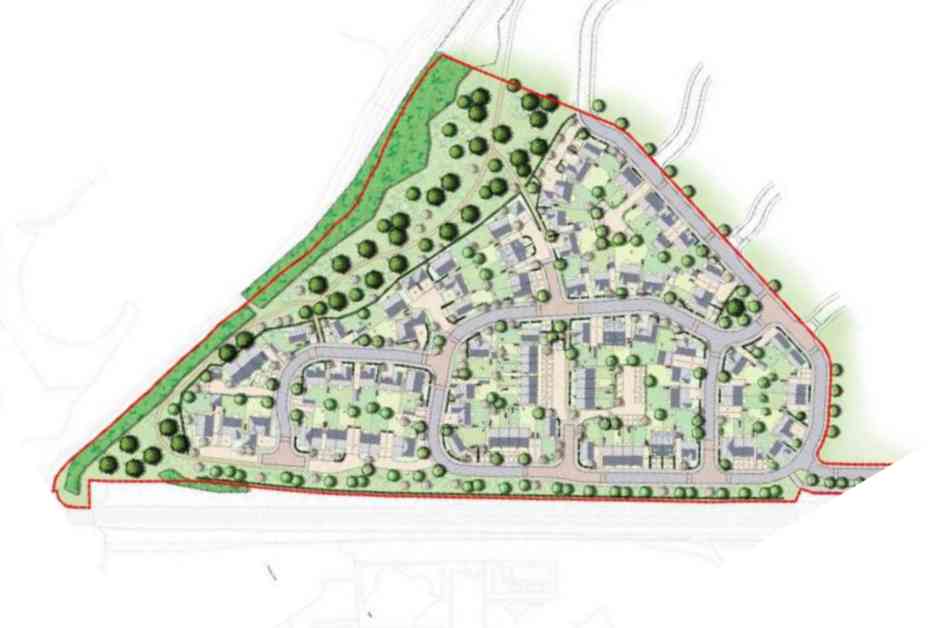Developer Appeals Council’s Decision to Reject 99-Home Plan on Former Green Belt Land
A developer, Wain Homes, has officially appealed the council’s decision to refuse a planning application for 99 homes in Newton-le-Willows. The proposal, which was submitted in November 2023, sought to build houses on land off Mill Lane, on the outskirts of Newton-le-Willows. This land had been previously removed from the green belt by St Helens Council.
This is not the first time that Wain Homes has faced rejection from the council for their development plans on this site. A similar proposal was also turned down in December 2022. The recent proposal included a commitment to providing 30 percent of the homes as “affordable housing” and aimed to utilize ‘white land’, which refers to vacant land without specific development proposals.
However, the council’s planning committee rejected the plans in March 2024, citing concerns about the impact on the local area. The council stated that the provision of an access and emergency link road through safeguarded land conflicted with the requirements of its Local Plan, which aims to identify opportunities for housing, employment, and developments.
The council also raised issues regarding the visual impact of the proposed development, stating that it would result in a visually isolated form of development that would harm the general character and appearance of the area. Furthermore, the refusal notice highlighted shortcomings in the overall planning of the residential development, including concerns about public open space, tree loss mitigation, drainage strategy, and the lack of financial commitment towards education provision or cycling and walking infrastructure.
Despite these setbacks, Wain Homes remains determined to pursue their vision for the site. The developer has appealed the council’s decision to the government’s Planning Inspectorate, seeking a review of the refusal. A spokesperson for the Planning Inspectorate confirmed that an Inspector has been appointed, and an inquiry into the application is scheduled for December 3.
Challenges Faced by Developers in Utilizing Former Green Belt Land
Developers often face challenges when attempting to utilize former green belt land for housing projects. Green belt areas are designated to prevent urban sprawl and protect the countryside, making it difficult for developers to secure planning permission for construction. In the case of Wain Homes’ proposal in Newton-le-Willows, the land had been removed from the green belt by the local council, but concerns about the impact on the area led to the rejection of the plans.
Importance of Balancing Development Needs with Environmental Concerns
The conflict between development needs and environmental concerns is a recurring issue in planning decisions. While there is a demand for housing and infrastructure development, it is essential to balance these needs with the protection of green spaces and wildlife habitats. In the case of the 99-home plan in Newton-le-Willows, the council’s refusal was based on the potential harm to the visual amenity and landscape character of the area, highlighting the importance of considering environmental impacts in development proposals.
The Role of the Planning Inspectorate in Reviewing Development Applications
The appeal process through the government’s Planning Inspectorate provides developers with an opportunity to have their planning applications reviewed independently. The Inspector appointed to oversee the inquiry into Wain Homes’ proposal will assess the arguments presented by both the developer and the council before making a decision. This process ensures transparency and accountability in planning decisions and allows for a fair evaluation of the proposed development’s merits and drawbacks.
In conclusion, the appeal for the 99-home plan on former green belt land in Newton-le-Willows highlights the challenges faced by developers in securing planning permission for housing projects. The conflict between development needs and environmental concerns underscores the importance of balancing growth with sustainability. The review of the planning application by the Planning Inspectorate will provide an impartial assessment of the proposal, ultimately determining the fate of the development project.




















